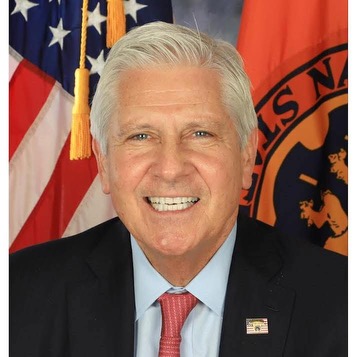Antigua
A second woman is now in police custody in connection with a report of human trafficking.
Police said they have detained a well-known businesswoman following a report by a female victim that her passport was allegedly withheld by the woman.
Investigators say that if the businesswoman is charged it would be the first time someone was brought before the courts for human trafficking in Antigua and Barbuda.
The development comes almost five months after National Security Minister Dr. Errol Court took issue with some of the findings of a U.S. State Department report on human trafficking. According to the State Department, a small number of women from Guyana, Haiti, Jamaica and the Dominica Republic are forced into prostitution in Antigua.
Dominica
The Dominica government has denied media reports that Dawood Ibrahim, a notorious Pakistani terrorist, is the holder of a local passport.
“The government has not granted, and denies that it granted, economic citizenship or a passport to Mr. Ibrahim. More importantly, the security and due process measures in place would make it impossible for a notorious criminal and wanted terrorist to be granted an economic citizenship or passport.
“The allegation is totally false,” a Government Information Service (GIS) statement said.
“In view of the clear measures in place and the measures taken to protect the security of the Commonwealth and other sovereign states, there is a strong and compelling reason to believe that the allegation is part of the ongoing conspiracy by some to destroy the reputation of the country for their own partisan gain and purposes by any means necessary,” the GIS said.
Guyana
More than 1,000 Guyanese families recently received Netbook computers with an additional 4,000 computers to be handed out at various areas throughout the country in the newr future.
President Bharrat Jagdeo said the initiative aims to offer hope for the country and to transform the lives of citizens.
“The goal is not to get laptops in every home but to ensure that within three years, every single Guyanese is computer literate. We want to be the most computer literate country in the world,” Jagdeo said.
The president called on parents to control the online sites visited by their children.
He urged them to be on guard for sexual predators and other negativities that can be found on the web.
The president also appealed to the recipients not to sell the computers.
The country will have an estimated 57,000 laptops under the initiative by year end.
An additional 33,000 will be brought in through a grant from the People’s Republic of China enabling the achievement of the overall program target of 90,000 laptops.
Haiti
President Michel Martelly plans to restore his country’s disbanded army even though diplomats have told him their countries will not fund the project.
Martelly recently met with diplomats, including representatives of the U.S., European Union and Brazil, who suggested revamping the national police rather than devoting resources to an army, given its long history of human rights abuses.
The president plans to issue a decree later this month that will reinstate the army under the command of a former colonel and will ask hundreds of former soldiers to reapply.
The force will initially total about 500 soldiers intended to guard the borders, help fight drug trafficking, protect the country’s few remaining forests from illegal timber harvesting and help in natural disasters.
Haiti
Former journalist and newly-appointed Haitian Culture Minister Choiseul Henriquez died while in Canada. He was 51.
The office of President Michel Martelly said in a statement recently that Henriquez died of a brain hemorrhage while in Ottawa. It said he had suffered from diabetes and hypertension.
Henriquez was due to serve as Minister of Culture and Communications in October, but was never sworn in because of his health problems.
He served as press secretary during his first term of two-time President Rene Preval, Martelly’s predecessor.
Henriquez also worked as a journalist.
Jamaica
Jamaica says it will receive a $90 million loan from the Inter-American Development Bank to help drive down energy costs.
Energy and Mining Minister Clive Mullings says an initial $20 million will be used to replace some of the hydrocarbons used in the island’s refrigerators and air-conditioning units.
He said another $1.2 million will be used partly to promote awareness about energy-saving measures.
Nevis
Opposition legislators continued their boycott of the Nevis Island Assembly (NIA), raising the possibility of their expulsion from the new legislature.
Members of the Concerned Citizens Movement (CCM) have been staying away from the NIA since the July elections that resulted in the Nevis Reformation Party (NRP) obtaining a second consecutive term in office.
In August, the CCM Deputy Leader Mark Brantley filed a petition in the courts challenging his defeat in the July 11 NIA elections.
Brantley lost the St. John’s Parish constituency by 14 votes to the incumbent Henry Daniel as the Nevis Reformation Party (NRF) regained control of the NIA, winning three of the five seats that were at stake in the polls.
Brantley wants the court to declare the elections null and void based on a number of irregularities, including the CCM’s lack of access to state-owned media and the removal of 200 previously registered voters from the voters’ list in contravention of the constitution.
Political observers say that the decision by the CCM members to boycott three consecutive sittings of the NIA could lead to the president of the legislature being asked to make a ruling on the position of CCM legislators.
Trinidad
The Trinidad and Tobago government is moving to pass legislation to make DNA testing “an established part of the criminal justice procedure and a routinely admissible element in court.”
Justice Minister Hubert Volney said when the DNA Bill became law more criminals would be caught in T&T.
In piloting the bill in Parliament, Volney said it would play a critical role in the advancement of the criminal justice system in T&T.
He said the anticipated increase in the use of DNA legislation in T&T “will serve as deterrent to criminals and so reduce the crime rate.”
The minister said the categories from whom non-intimate samples could be taken have expanded to include members of the protective services; holders of firearms licenses; deported citizens and people from whom samples were required in the interest of national security.
He said all DNA-testing facilities would be set up at all police stations.
Trinidad
Prime Minister Kamla Persad-Bissessar has announced that her government will spend TT$300 million to create more than 20,000 jobs for persons in “hot spots” areas as part of its anti-crime master plan.
The program, targeting youths, recently began in Port of Spain for the Christmas season.
Her employment plan came on the heels of the recent removal of the 11:00 p.m. to 4:00 a.m. curfew. The State of Emergency, however, remains in place.
“We are intent to engage our youth and the most vulnerable members of our community in a massive job-creation program, entitled “Reclaiming our Youth; Embracing Our Future.”
Persad-Bissessar said the government intended to increase its existing capacity in several social intervention programs to 20,000 jobs at an estimated cost of TT$300 million.
She said the Community Enhancement Program (CEPEP) would increase its capacity to engage members of communities and neighborhoods most affected by crime and deviant behavior.
The program is for three months.
Compiled by Azad Ali

























